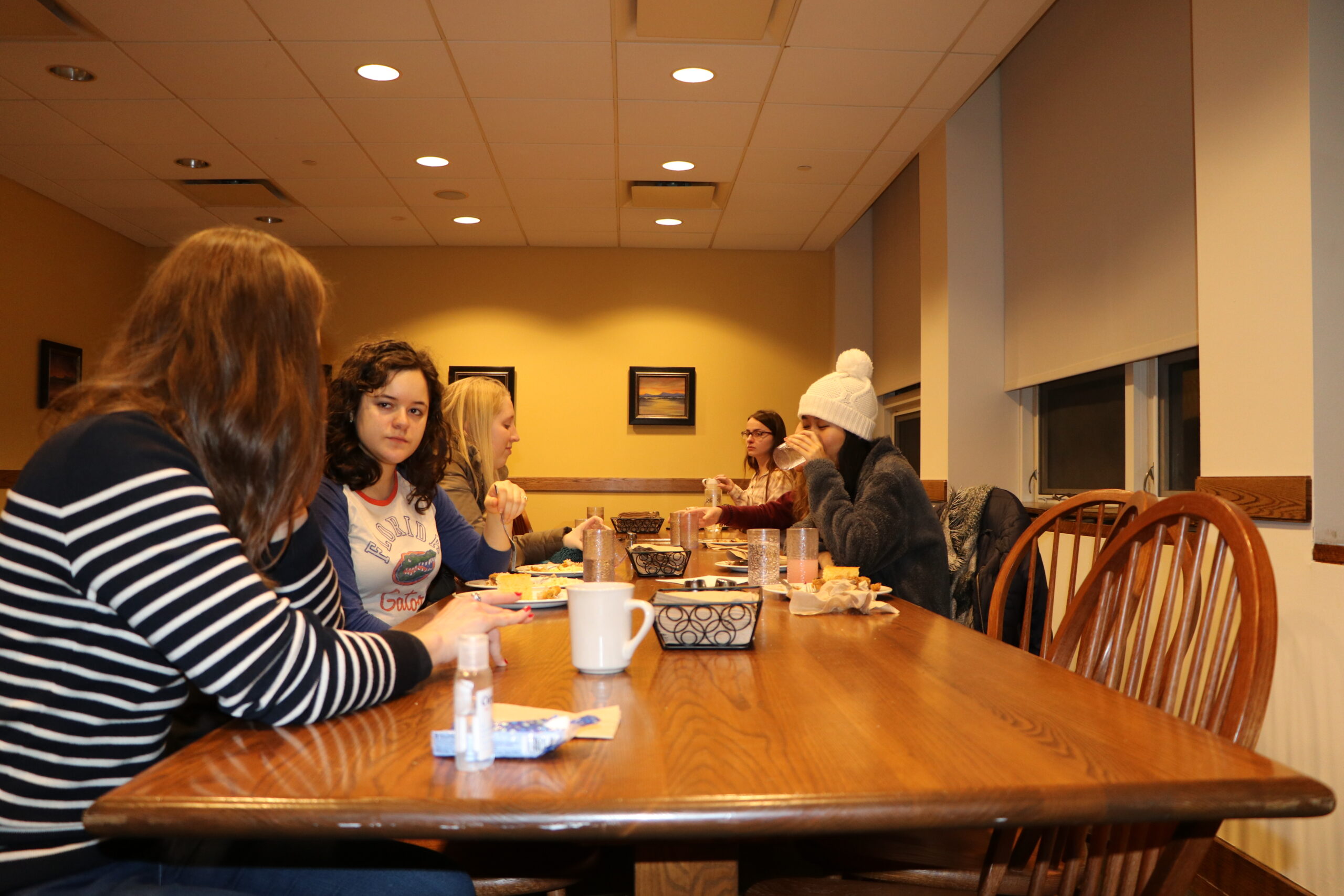Language tables add foreign twist to Bowdoin’s dining halls
February 22, 2019
 Miles Brautigam
Miles BrautigamAs you move towards the private rooms in Thorne Hall during dinner on any given night, you may be able to catch the sounds of an unfamiliar language. From Spanish to Hebrew, dinnertime language tables provide students with an opportunity to practice their native tongue or develop skills learned in the classroom.
Every week, various language departments and clubs host nine different language tables that cater to both novice and native speakers. But for many, these language tables aren’t merely an opportunity to practice. Rather, participants say they create an opportunity to be immersed in a different culture in an intimate, casual environment. It’s a place where people from all over campus and beyond can interact and share their love for a language and culture.
“We share the culture, then translate it into the community,” said Senior Lecturer in Japanese Language Hiroo Aridome.
Attendees at the language tables include students, professors, teaching fellows and even Brunswick residents. Without the constraints of a classroom, conversation flows freely.
“With the opportunity to meet with students in another atmosphere … it’s a lot more harmonious and friendly,” said Coline Cumond, a French teaching fellow.
Each table has a different style, with some encouraging free discussion about any topics, while others focus more closely on certain cultural topics. Japanese student Emma Kellogg ’20 said that when a professor wasn’t leading the discussion, she just has a normal dinner with her friends, but in Japanese.
It’s no accident that these opportunities happen at dinner. Lecturer in Chinese Language Xiaoke Jia noted that “food is often the main attraction,” especially for students interested in Chinese. He explained the department often will bring dumplings, mooncakes or other Chinese foods to add a distinctly cultural element to the typical dining hall fare.
The tables strive to create a sense of family—sometimes literally so. Thirteen years ago, for example, when Associate Professor of Asian Studies Vyjayanthi Selinger moved to Brunswick, she began taking her baby girl to the Japanese table and soon after, her newborn son.
“I think it’s kind of cool for students to see professors raising children, and some of those children scurrying under the table,” said Selinger. “Now, sometimes my son, who is 10 years old, will be helping out some of my college students.”
Participants say the tables provide space to speak and practice a language without the pressure of class. Gannon Leech ’21, who attends the Italian table, explained that the low-stress setting made him more comfortable practicing speaking.
“It’s easier because you don’t have to be perfect, just because most people understand what you’re saying. And so if you don’t have the correct tense, people aren’t going to correct you,” said Leech.
This intimate environment at the language tables also allows upperclass students to guide younger students in the language and create new relationships.
“What is amazing is that first-year Japanese students who just started the language are probably terrified out of their minds of speaking their language. [But they] always come and always have a good time because they have these upperclassmen. We’re helping them out,” said Selinger, who began learning Japanese while she was an undergrad.
While it may be intimidating to try a new language with more experienced speakers, the Japanese table retains a high turnout through professors’ encouragement.
“I think it’s more just [that] they want you to come so that you can be part of the community,” Kellogg said. “And if you don’t come, then they’ll [ask], are you OK? What’s going on?”
The different levels of fluency and experience with the languages spoken at these tables creates a spirited community of learning, allowing students isolated in snowy Maine a free passport to a new way of expression.

Comments
Before submitting a comment, please review our comment policy. Some key points from the policy: